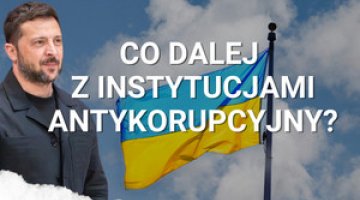The coup d’etat in Luhansk
On 25 November, as a result of an armed coup, Igor Plotnitsky, the leader of the so-called Luhansk People’s Republic (LNR, from the Russian), one of two the separatist para-states supported by Russia in the east of Ukraine, was replaced by Leonid Pasechnik, the LNR’s former security minister. The direct cause of upheaval was the decision by Plotnitsky to sack the head of the local interior ministry, Igor Kornet; the latter refused to step down from his post, and brought the forces under his command out onto the streets of Luhansk and blockaded the key offices. This action also saw the participation of armed groups who had entered from the so-called Donetsk People’s Republic (DNR) and took Kornet’s side. As a result, Plotnitsky left the LNR, and most likely went to Russia.
The Kremlin took a very long time to comment on the events in Luhansk. It was only on 27 November that a spokesman for President Putin said that the Kremlin “assumes that the continuity of the authority will be maintained, in particular as regards the implementation of the Minsk agreements, and the initiatives concerning the exchange of detainees”. Kyiv has not issued any statements on the matter, and publicly has merely stated that it is following the events in Luhansk very closely. The Ukrainian government has used the situation to emphasise Russia’s involvement in the processes taking place in the unrecognised republics.
Commentary
- In contrast to the DNR, where during the year after the seizure of power by the Russian- controlled separatist movements, the situation between the various groups of influence was brought to relative stability, the Luhansk People’s Republic is still the scene of internecine power struggles. After eliminating the commanders of the Cossack groups which controlled the border between the DNR and LNR, Plotnitsky came into conflict with Igor Kornet, the head of the LNR’s ministry of internal affairs. The root of the dispute was a struggle for power, as well as an attempt to take over the financial benefits derived mainly from crime and the smuggling and laundering of goods, as well as taking control over the resources sent by Moscow to maintain the para-state. The chaos and periodic exacerbation of the fight between groups of militants in the LNR aroused the irritation of Moscow, which is seeking to reduce the costs incurred in maintaining the breakaway self-styled republics in the Donbas region.
- The intermittent outbreaks of conflict in the separatist republics are either amplified or suppressed by the direct or indirect involvement of the various Russian players controlling the LNR and DNR, who operate at both the local and central levels. Conflicts of interest and elements of competition arise at the crossroads between the political level (the leaders of the two republics are part of the sphere of influence of Vladislav Surkov, a long-time adviser of Vladimir Putin) and the military level (the republics’ individual structures are controlled by Russian law enforcement agencies, including the special services, namely the GRU, and especially the FSB). In addition, competition often runs across the various institutions, and between the local and central levels. At the same time, disputes among the separatists, if they do not lead to excessive escalations, often play out without much interference from the Russian players: they only play the role of arbitrator in extreme situations. The final result of conflicts in the separatist republics is an effect of both the current balance of power between the local actors and their Russian handlers, and the political decisions of the Kremlin.
- On the one hand, an armed coup in the LNR is unfavourable for Moscow’s image, as it tries to force Kyiv to treat the separatists as full participants in the talks on the Donbas conflict. First, Plotnitsky was a signatory (albeit with no indication of his function) to the agreement to resolve the Donbas conflict signed in Minsk in 2015, and was also a participant in the so-called contact group talks. Secondly, Moscow’s current tactics are based on pretending to the West that it is undertaking constructive actions to implement the Minsk agreements and end the war in Ukraine. One of these was the propaganda gesture organised by the Russian government around the exchange of prisoners between the separatists and Kyiv, in which President Putin personally requested the leaders of the breakaway republics (including Plotnitsky) to exchange prisoners with Ukraine. This conversation with the Russian president, which reinforced Plotnitsky’s legitimacy as leader of the LNR, may have led the latter to try to resolve the conflict with Kornet. At the same time, it does not appear that the coup was arranged by Vladislav Surkov, who is the coordinator of Moscow’s policy towards the separatists.
- On the other hand, the removal from control of the LNR of the disgraced Plotnitsky, who had already been disciplined in the past because of the scale of the thefts of Russian humanitarian aid, could be used by the Kremlin to reduce the chaos in Luhansk and strengthen its control of the separatists. Plotnitsky’s successor, Leonid Pasechnik, is a former officer of the Ukrainian special services and is considered to be under the control of the Russian Federal Security Service; it is most likely that their senior officers supported the coup in Luhansk. His appointment means the further empowerment of the FSB in the control of the separatist republics.





